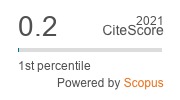A study of the energy aware routing protocol (EARP)) for AdHOC wireless sensor networks
Abstract
Wireless adhoc sensing devices set themselves apart from other wireless adhoc networks with their low power light weight routing techniques and adaptive transmission patterns For ad hoc wireless sensing devices this paper proposes an energyaware routing protocol EARP and examines the energy consumption of the routing protocol and servicing phases According to the energy consumption associated with reactive routing processing EARP advises reducing route demands by offering route selection expiry durations In a mobile ad hoc network the devices are frequently batteryoperated The batterys power capacity determines how long a node can last Each message sent and calculation run drains the battery One strategy for managing power in wireless ad hoc networks is power awareness transportation The energy supply of the networks devices are utilised more frequently on average and over time when pathways with lower reluctance levels are chosen This suggests that the routing decisions made by the routing protocol must take the nodes power states into account The life of the node will be prolonged since nodes with low batteries will receive less packet forwarding preference than nodes with full batteries A routing algorithm should seek to minimise control packets such as recurrent patch messages in order to prolong the lifespan of the endpoints and network However not all relay nodes and consciousness routing powering strategies are suitable for successfully implementing aware routing This study suggests a novel method for calculating route expiration time that takes into account mobility hop count and time dependence Unlike AODV EARP maintains valid routes for longer periods of time preventing recurring saturation of route discovery




